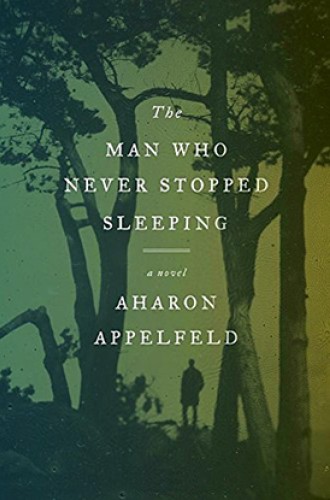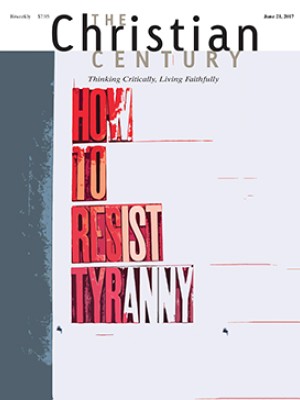Dreaming in Israel
In Aharon Appelfeld's novel, a teenage Holocaust survivor sleeps, remembers, and learns to speak anew.
If it’s universally acknowledged that a person who speaks a lot about her dreams is a bore, it’s equally certain that books featuring more than a few dream sequences make for tiresome reading. When employed as a device to propel an otherwise pokey or improbable plot, dreams seem too convenient or cheap—a bothersome fringe that could easily be trimmed away. But when the dreams are woven into the fabric of a psyche and of a story, as in Aharon Appelfeld’s newest book, the effect is powerful, hallucinatory, and haunting.
From the first line of the novel we are given to know that the title character’s dreams are urgent and necessary work. “At the end of the war, I became immersed in constant slumber,” begins Erwin’s account of his journey with other Holocaust survivors from Europe to Israel. He’s a teenager, but it’s as if he’s a baby, even one in the womb. His body, he says, remembers “that darkness, drifting and being borne along.” The refugees move him, feed him, and try to wake him. But sleep is a force with substance and texture of its own that traps him, overpowers him, swaddles him: all he wants is to return to his home and parents, which are no more. He is a ragged sleeve that sleep is knitting up; in his sleep, he is finishing his childhood, ending the long nightmare of the war, and struggling to awake (or to be reborn) into something new. “I wish you a fine awakening and a life of alertness, activity, and the ability to love,” writes a man in the camp who resembles Erwin’s lost Uncle Arthur.
Read our latest issue or browse back issues.
Erwin repeatedly encounters strangers who look like lost relatives. He is in that position too, looking like someone’s lost son. The repetition evokes the confusion, longing, and loneliness of a generation of survivors, each of whom must have searched the faces on every ship arriving in Haifa, squinting to discern familiarity and fixating on whatever familiarity was to be found. “In every corner I see a relative,” Erwin says to a woman who reminds him of his Aunt Elsa. He rouses himself to alertness to seek out his relatives and then falls back into slumber to talk over his new life with his parents. His dreams are not written “dreamily” but matter-of-factly, and of whole cloth with the novel, which encourages readers to take them as seriously as Erwin does.
It’s not all dreaming, though. From Haifa, Erwin is taken to a kibbutz with other boys and remade into a Jew for the Land of Israel, the antithesis of the intellectual diaspora Jew, a so-called “muscular” Jew. (The term was coined by the Zionist leader Max Nordau in the late 19th century.) The boys’ training in the Hebrew language is rigorous and simultaneous with their physical training; they run while reciting letters and words, and their leader, Ephraim (whose “joy was the future”), speaks of “the need to attach the language to our bodies.” They are exhorted to exchange their given names for Hebrew names; Erwin is to become Aharon.
But erasing the past is impossible. In dreams, Erwin’s Uncle Arthur criticizes “muscle Judaism” as a “twisted idea”—an idea born from a “world of injustice.” In dreams, his mother begs him not to lose his mother tongue. In dreams, Erwin confesses to his father that the exercise and the learning are changing him, and it hurts: “‘Let it change you.’ Father’s voice was full of despair.”
Erwin-Aharon does change, and not without pain. He binds himself to the Hebrew letters, spending hours copying out the Hebrew text of Genesis even while he recovers from a serious injury. We learn that his father was a frustrated writer who, in peacetime, had many manuscripts rejected, but whose storytelling in the camps kept people alive in hope. Erwin-Aharon begins to dream of chasing Hebrew letters, his voice gaining in strength as he once again, slowly, begins to walk.
The novel is autobiographical. Aharon Appelfeld was born Ervin Appelfeld, in 1932, in a part of Romania that’s now part of Ukraine. Like the fictional Erwin-Aharon, the novelist spent several months in a refugee camp in Italy before making his way by ship to Haifa when he was just 14. And like Erwin-Aharon, Appelfeld did not learn Hebrew until he was a teenager. He spoke German with his parents and Yiddish with his grandparents. He told the Paris Review that Hebrew became his adopted mother tongue perhaps because the languages of his childhood were so painful to speak: “What can you say after seeing so many dead people, after seeing so much pain? After a big catastrophe, you lost words. Every word is a stupid word when you use it.” In an interview with Ari Shavit in My Promised Land: The Triumph and Tragedy of Israel, Appelfeld speaks of his profound loneliness as a young man in Israel, trying to “rehabilitate himself, to define himself and to find his own voice.” Haunted by loss, illuminated by hope, and richly textured with tradition, Appelfeld’s narrative probes questions of history and identity, vocation and meaning in language that’s deceptively simple—as luminous and lingering as poetry.







